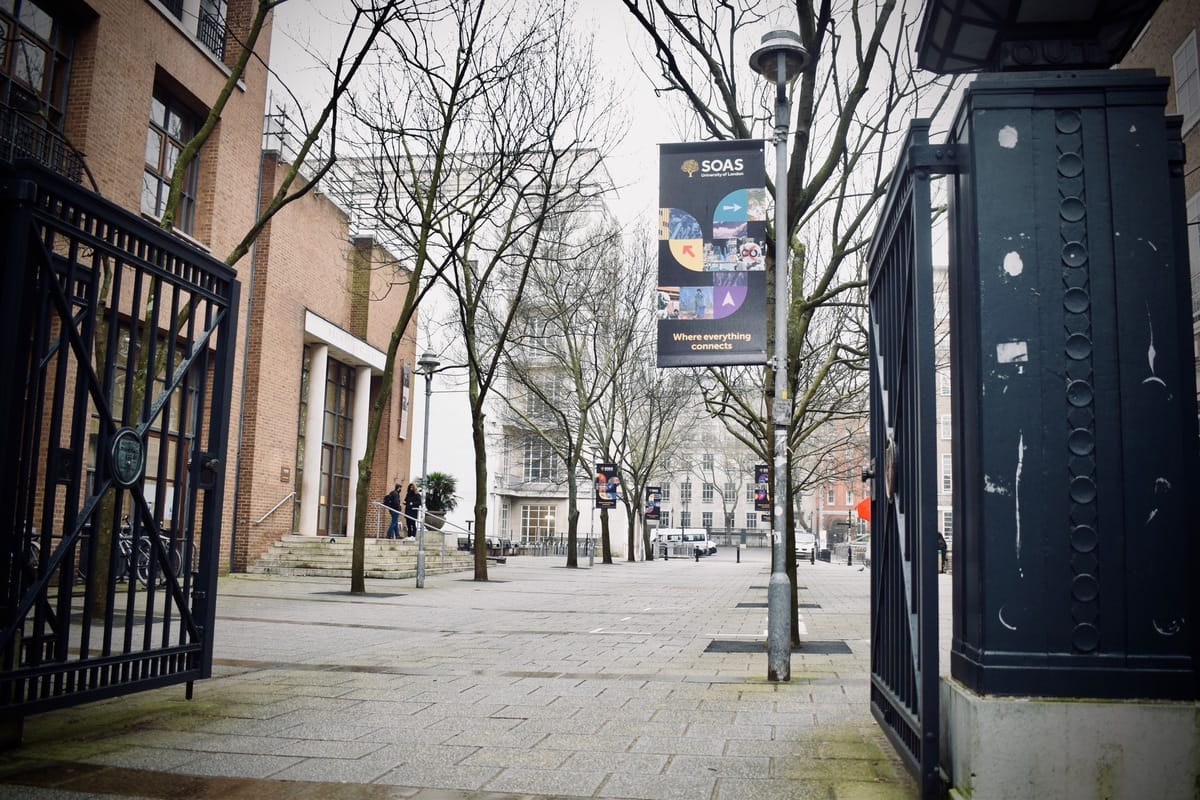Hundred of Thousands of Pounds in Tuition Fees Being Withheld by Student Strikers

By Lara Gibbs, BA Chinese (Modern and Classical)
On 14 February, 104 students began withholding their tuition fees from SOAS. The strikers are part of the SOASWTFees campaign. According to SOASWTFees’ Strike Commitment Forms, filled out by strikers, students are collectively withholding hundreds of thousands of pounds.
For Mais, an MA student, it started from a petition with fellow students as they were unhappy with a lot of the conditions, such as self-certification and online services. In speaking with class reps from other courses and the SU, they discovered theirs was not the only petition going around. They then joined a fee strike WhatsApp group. From there, they decided to create a petition and letter that accurately represented their demands and sent it to SOAS Management asking for a meeting, stating they would be withholding fees. This initial letter garnered support from 997 students.
Since the letter, they have had two meetings with management. Although Adam Habib, SOAS Director, was not present at the first meeting. They met for their second meeting on 5 March. According to SOASWTFees, they discussed fee compensation, SOAS working conditions and the securitisation of the campus. SOASWTFees proposed a cross-university committee, demanding government bailout of UK universities. However, the strikers say Habib offered to explore what was deemed as more appropriate strategies with strikers, saying the current proposed strategy is counterproductive. In addition, Habib warned strikers of the potential consequences of withholding fees including the possibility of not being able to graduate from their courses.
SOASWTFees are doing well-being check-ins for students taking part. They are holding drop in sessions for additional support. Mais explained that they will remain on strike until they feel their demands have been adequately met. The striking students risk being blocked from the SOAS moodle, thus losing access to lectures and submission points for assignments.
Mais feels that the consensus amongst strikers has changed as time has gone on. They explained that initially, some strikers wanted a direct refund or partial rebate as they believed the school had not delivered on their promises as a business. Others argued education should not be run as a business and instead made demands for free education.
“If SOAS isn’t the one to start this nationwide campaign from a University standpoint, then who is?”
It appears SOASWTFees see their campaign as part of a wider issue. Mais says they have come to recognise that the compensation they are demanding would come from a government bailout and not SOAS themselves. SOASWTFees are asking SOAS to lead a nationwide cross-university coalition in asking the government for a bailout and condemning the marketisation of the HE sector. ‘If SOAS isn’t the one to start this nationwide campaign, from a university standpoint, then who is?’ says Mais.
According to Mais, it has been difficult to organise direct action due to the pandemic. SOASWTFees’ social media campaign has enabled them to connect with other campaigns, such as 9K4WHAT and Forgotten Students. Mais expressed ‘the social media campaign is there to put pressure on management when the time comes for that.’
Another student, Jessica, is in charge of the social media accounts. She expressed that it has become an important part of communicating updates on the campaign and allows for strikers to engage and be reassured. She also says that some students are beginning to feel under pressure as a result of the fee strike.
Mais encourages students to stand in solidarity with strikers. They ask students to email management and their local MP to raise awareness and look out for updates on the campaign.
In terms of progress, Mais explained that students are now able to use self-certification on their mitigating circumstances application four times instead of two. In talking to the Spirit however, Adam Habib explained that this was not in response to the strikers.
Habib also expressed disappointment towards the fee strike, saying it ‘threatens the institution in ways that are not in the interests of students.’ Habib explained that he is a supporter of free education and that students do deserve support. However, he believes it is unfair to think universities can refund fees. Staff salaries constitute 62% of SOAS’ expenditure of the budget this year.
He argues support for student fees is a legitimate demand, but that demand cannot be made at individual universities, but at government level. Habib also argues it is not in the long term interest of students or anybody else that this fee strike continues. Thus, he explains he is opposed to the strike.
Furthermore, Habib says he found the way strikers engaged him as ‘discourteous’ and says going forward he will demand a higher level of courtesy. In addition, he argues that the fee strike ‘plays into the hands of people with very conservative agendas.’ He also fears it may create a financial challenge for SOAS and hopes that the strikers will ‘think through what they do,’ saying that progressive outcomes require thought.
In relation to Prevent Policy, which strikers have criticised, Habib says that these are government policy questions and not for the university to deal with. He says ‘it is illegitimate to go on a fee strike on something that we are not the architects of’ and went on to say it is inappropriate for students to ask the university to take a position on such policies. However, Habib expressed that he is very critical of the Prevent Policy. Habib says ‘This is not a political party, it is a university.’ Habib voiced that he will be honest and transparent and critique where necessary.
Photo caption: The SOAS campus remains largely empty after Christmas. (Credit: Lara Gibbs)



